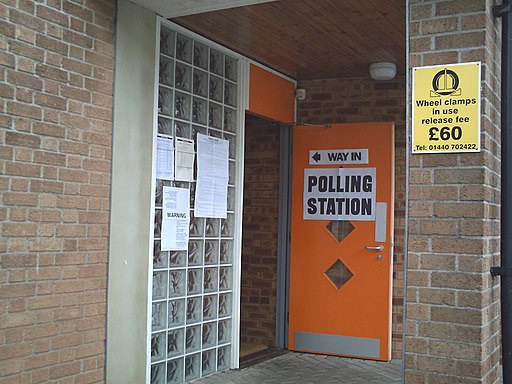The 2014 Police and Crime Commissioner (PCC) elections have again been marred by low turnout, apathy and questions about their legitimacy. Reacting to this year’s polls, Chris Kirkland, Doctoral Researcher at the University of Sheffield argues that Nick Clegg’s refusal to field a candidate in South Yorkshire’s ballot marks a new low for British democracy.
The PCC elections can at best be described as contentious, and at worst almost illegitimate. They were marred in 2012 by low turnouts which ranged from lows of 11% to highs of 20% in different regions. Such low turnouts were replicated again in the Worcestershire by-election in August and may even be surpassed this time around in South Yorkshire.
It could be argued that low turnout in these elections, themselves poorly timed (in 2007 Gordon Brown supposedly refused to hold an election in October half term week for fear of low turnout), and poorly advertised within national and even local media, would be inevitably low. This argument is logical and makes sense. However what was remarkable about yesterday’s South Yorkshire PCC by-election around was the fact that the leader of a ‘mainstream’ political party refused not only to stand a candidate but to vote (or even spoil their ballot) in the election.

By 159753 (Own work) [Public domain], via Wikimedia Commons
Nick Clegg
Nick Clegg earlier this week denounced the roles of the PCCs as a ‘failed experiment’ and vowed not to stand a candidate in the South Yorkshire election or vote himself. The lack of a Liberal Democrat candidate in the election left the ballot paper with one Labour candidate, one Conservative candidate, an English Democrat and a United Kingdom Independence Party (UKIP) candidate. Granted, other political parties were also missing from the ballot, as were independent candidates who made up a significant proportion of the elected PCCs last time around. However, not only did Nick Clegg refuse to put up a candidate, he also abstained from voting in the election itself, a quite remarkable move. Clegg could have votes for a party other than the Liberal Democrats, or he could easily have turned up to his local polling station and spoiled his ballot.
The lack of a Liberal Democrat candidate, although it will inevitably be used to question the ‘national’ credentials of the party, is in many ways far more excusable than the Deputy Prime Minister publically stating that he will not vote in the election. This is someone who doubtless in less than six months will be trying to persuade people to vote for him personally in the 2015 general election. In offering reasons for his decision Clegg claimed that these posts in 2012 were contested between ‘recycled politicians’, that they were unaccountable as no-one voted for them. None of his, nor his party’s, actions seek to overcome such shortcomings.
Illegitimacy
Here what becomes important is Clegg’s presentation of democracy and elections. Through decrying voting Nick Clegg fails to see democracy as anything more than a ratifying process, with all votes cast lending legitimacy to the result. Rather than such a view I suggest we as voters not only have the choice to elect candidates but also have the opportunity to mark our dissatisfaction on ballot papers through spoiling our ballot papers. The 2012 election included spoilt ballots in the turnout. Normally hovering below the 1% mark a significant rise in the number of spoilt ballots was noted and used to demonstrate growing dissatisfaction at the processes. An increase in the number of spoilt ballots would have had the same effect this time around.
The frustrations of the Liberal Democrats are not unjustified, and I do not here seek to make any normative assumptions about the values of the PPC elections. Instead what I wish to suggest is that the actions of Nick Clegg and the Liberal Democrats demonstrate not only a simplistic contempt for elections and their processes, but also stand in stark contrast to the message that the party will be conveying in 2015. Rather than using his positon to offer alternatives or reforms this simplistic narrative only serves to further disengage the public with the political process. Such messages further point to worrying trends; if these positons were also held and taken by other party leaders could we be faced with a situation in which politicians who disagree with policies routinely argue in favour of apathy? Are we approaching a truly apathetic democracy?
Bio
Christopher Kirkland is a PhD candidate at The University of Sheffield, having previously studied at The University of Nottingham and The University of Manchester. His thesis explores issues of crisis and the role of agency, comparing two case studies from contemporary British Politics. Other research interests include British elections and voters, British political economy and the British Labour Party.
Note: this article gives the views of the author, and not the position of the Crick Centre, or the Understanding Politics blog series. For more follow our twitter discussion #understandingpolitics.




